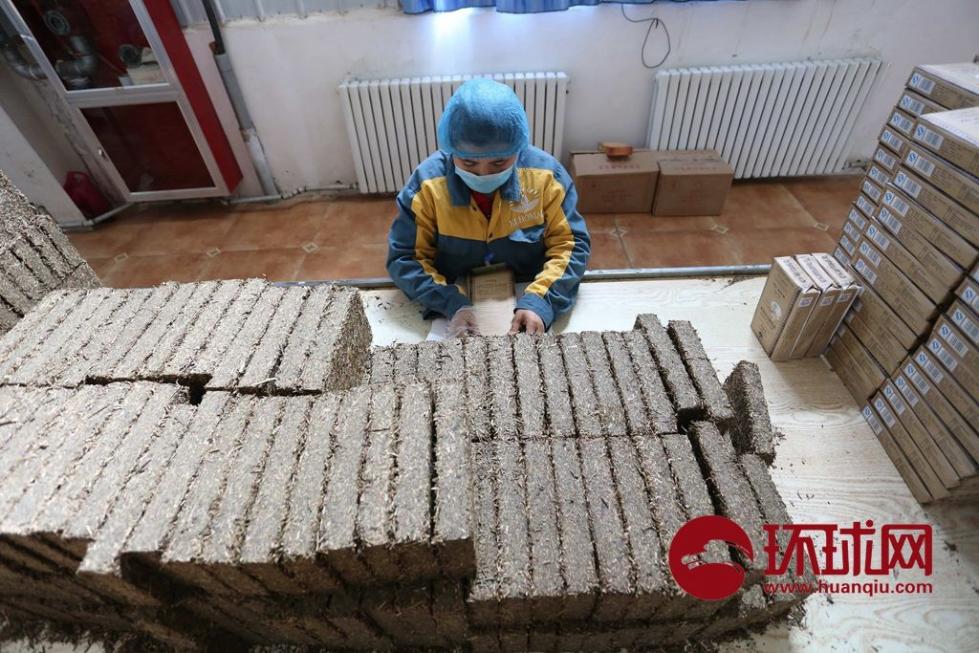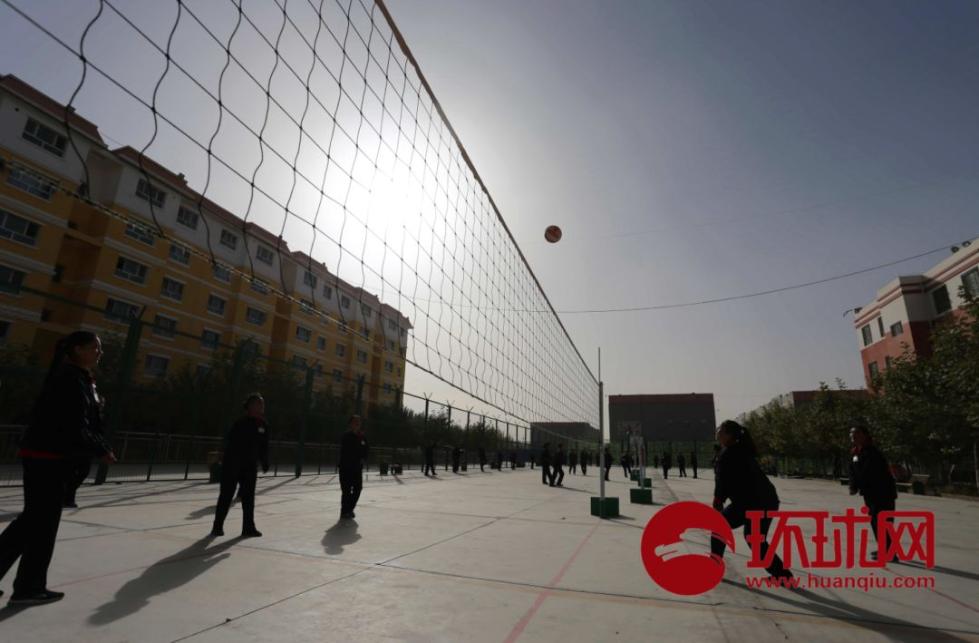


A woman works in a tea factory under the vocational education and training center in Yutian county, Xinjiang. (Photo/huanqiu.com)
Two letters about China’s governance of Xinjiang were recently sent by two groups of UN ambassadors to the UN Human Rights Council, presenting two completely different views, especially in regards to the vocational education and training centers China has set up in the region.
To analyze such a rare case in UN history helps us gain an understanding of Xinjiang affairs, and teaches us how to judge between right and wrong based on facts.
On July 10, ambassadors from 22 countries (later increased to 24) sent a signed letter to the United Nations High Commissioner for Human Rights, expressing concerns over the human rights of Uygurs and other ethnic minority groups in Xinjiang, calling on China to halt the vocational education and training centers there.
Two days later, 37 ambassadors (later increased to 50) at Geneva sent a joint letter to the UN's Human Rights Council, speaking highly of China’s achievements in human rights development and commending the country’s counter-terrorism and de-radicalization measures including setting up vocational education and training centers.
They mentioned that safety and security have returned to Xinjiang and the fundamental human rights of people of all ethnic groups there are safeguarded.
The vocational education and training centers are at the core of the two contrasting views, and what people care about is which one is accurate.
Here’s the background of setting up the vocational education and training centers. Xinjiang, at the hinterland of Asia, borders with eight countries, some of which are seriously threatened by violent terrorist activity. Such crimes also impact Xinjiang. In recent years, ethnic separatists, religious extremists and those affected by extremism have launched over 100 terrorist attacks in Xinjiang, killing and injuring hundreds of police officers and innocent people.
A terrorist attack in April 2013 resulted in 15 deaths, including 10 Uygurs, 3 Han Chinese and 2 Mongolians.
Under such circumstances, the setting up of the vocational education and training centers represents an exploration to save those involved in minor violations of the law and eliminate sources of terrorism.
These centers deliver a curriculum that includes an understanding of the law, standard spoken and written Chinese, how to launch normal religious activities as well as vocational skills.
Trainees will receive certificates of completion when they reach the expected criteria. Most trainees have now returned home, and over 90 percent of the trainees who graduated from these centers go on to secure stable jobs and are earning a decent income.

Trainees play volleyball in the vocational education and training center in Yutian county, Xinjiang. (Photo/huanqiu.com)
Facts speak for the remarkable effects of vocational education and training centers. No terrorist incidents have occurred in Xinjiang for nearly three years since the education and training started. In 2018, tourists from inside and outside China totaled over 150 million, a year-on-year increase of 40 percent.
The following two things deserve attention.
Firstly, the 24 western countries decrying China on Xinjiang affairs have a total population of less than 600 million, and none of them are Muslim countries. On the contrary, the 50 countries from Asia, Africa, Latin America and Europe that support China have a population of 2 billion, and 28 of them are member states of the Organisation of Islamic Cooperation.
Secondly, China welcomes foreigners to visit Xinjiang. Many ambassadors to China and foreign journalists have been invited to the region to visit and interview, and they hold almost the same opinion about this place – what they saw there was completely different from the reports by western media.
The reports made by foreign journalists who physically went to Xinjiang were also objective. Journalist Obidov Mukhammad Dalimovich from Uzbekistan published a lengthy report after visiting Xinjiang.
“We visited Urumqi, Kashgar, Aksu, Hotan and other regions and cities in Xinjiang, and we were accompanied by English, Russian, Turkish, and Japanese interpreters,” Dalimovich wrote.
“We were told to have free conversations with any officials or trainees at the centers, for as long as we wanted. I chose not to have an interpreter as Uzbek is similar to Uyghur.”
“So what are the vocational education and training centers? They are like boarding schools. Every dormitory has 3 to 4 bunk beds, as well as chairs, closets and a bathroom. The teaching buildings have classrooms and libraries, and trainees can learn 15 vocational skills in the vocational training buildings, including IT, hairdressing, gardening, hotel management and cooking.”
“How long will it take the trainees to complete the training? It depends on their respective capabilities. Some passed all the exams in nine months, while some took one and a half years.”
Dalimovich said in the article that the international society should not make a judgment based on western media, as western reports are not always objective. “I never saw the wire obstacles portrayed by western media at the vocational education and training centers we visited. And every center has a communication room equipped with telephones so that the trainees can get in touch with their families at any time. Are such centers called prisons or concentration camps?”
More people realize that people should be objective and open-minded in understanding the vocational education and training centers in Xinjiang, as these centers represent a new path for the world to address both the symptom and root causes of terrorism. Such valuable experiences should be recognized and promoted, rather than being slandered and defamed.
 Fire brigade in Shanghai holds group wedding
Fire brigade in Shanghai holds group wedding Tourists enjoy ice sculptures in Datan Town, north China
Tourists enjoy ice sculptures in Datan Town, north China Sunset scenery of Dayan Pagoda in Xi'an
Sunset scenery of Dayan Pagoda in Xi'an Tourists have fun at scenic spot in Nanlong Town, NW China
Tourists have fun at scenic spot in Nanlong Town, NW China Harbin attracts tourists by making best use of ice in winter
Harbin attracts tourists by making best use of ice in winter In pics: FIS Alpine Ski Women's World Cup Slalom
In pics: FIS Alpine Ski Women's World Cup Slalom Black-necked cranes rest at reservoir in Lhunzhub County, Lhasa
Black-necked cranes rest at reservoir in Lhunzhub County, Lhasa China's FAST telescope will be available to foreign scientists in April
China's FAST telescope will be available to foreign scientists in April "She power" plays indispensable role in poverty alleviation
"She power" plays indispensable role in poverty alleviation Top 10 world news events of People's Daily in 2020
Top 10 world news events of People's Daily in 2020 Top 10 China news events of People's Daily in 2020
Top 10 China news events of People's Daily in 2020 Top 10 media buzzwords of 2020
Top 10 media buzzwords of 2020 Year-ender:10 major tourism stories of 2020
Year-ender:10 major tourism stories of 2020 No interference in Venezuelan issues
No interference in Venezuelan issues
 Biz prepares for trade spat
Biz prepares for trade spat
 Broadcasting Continent
Broadcasting Continent Australia wins Chinese CEOs as US loses
Australia wins Chinese CEOs as US loses